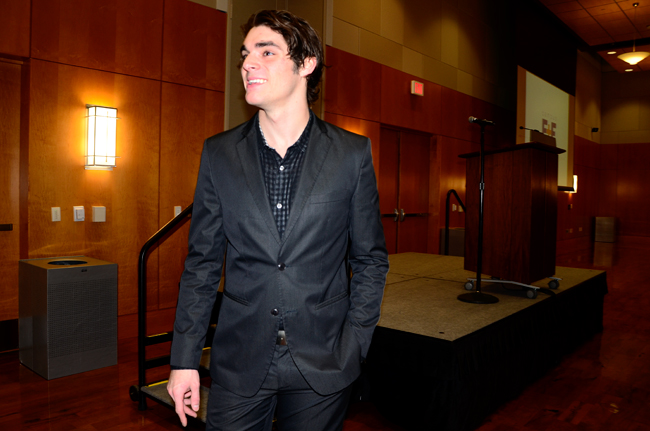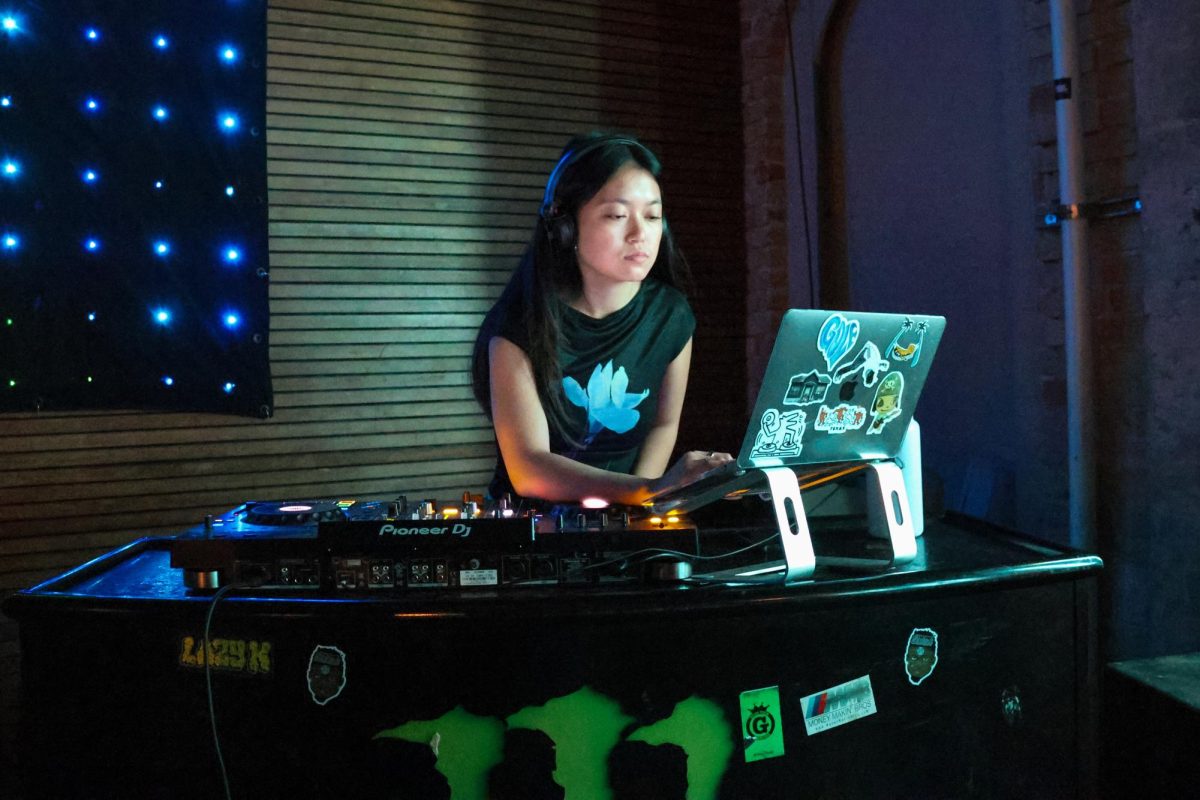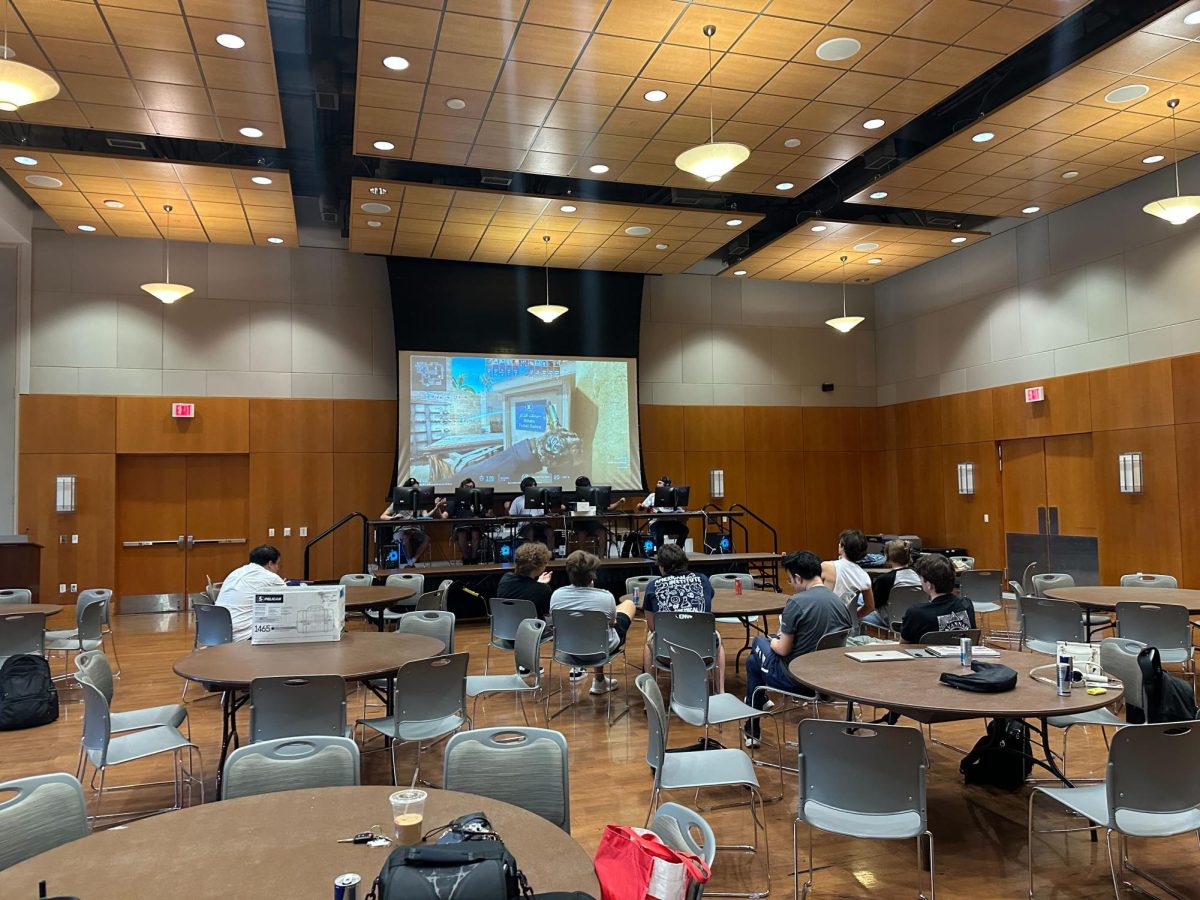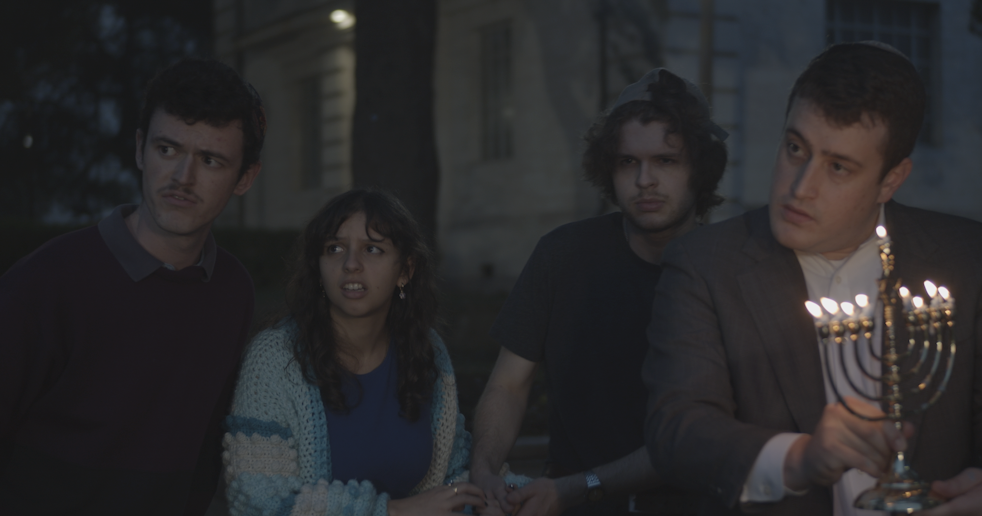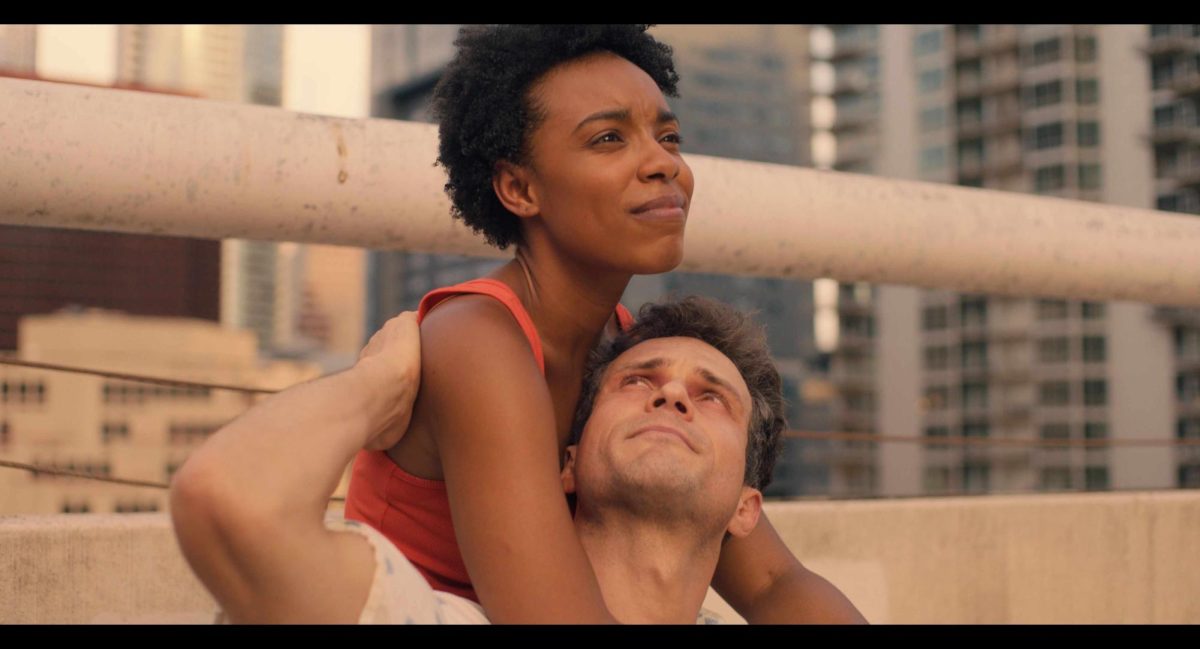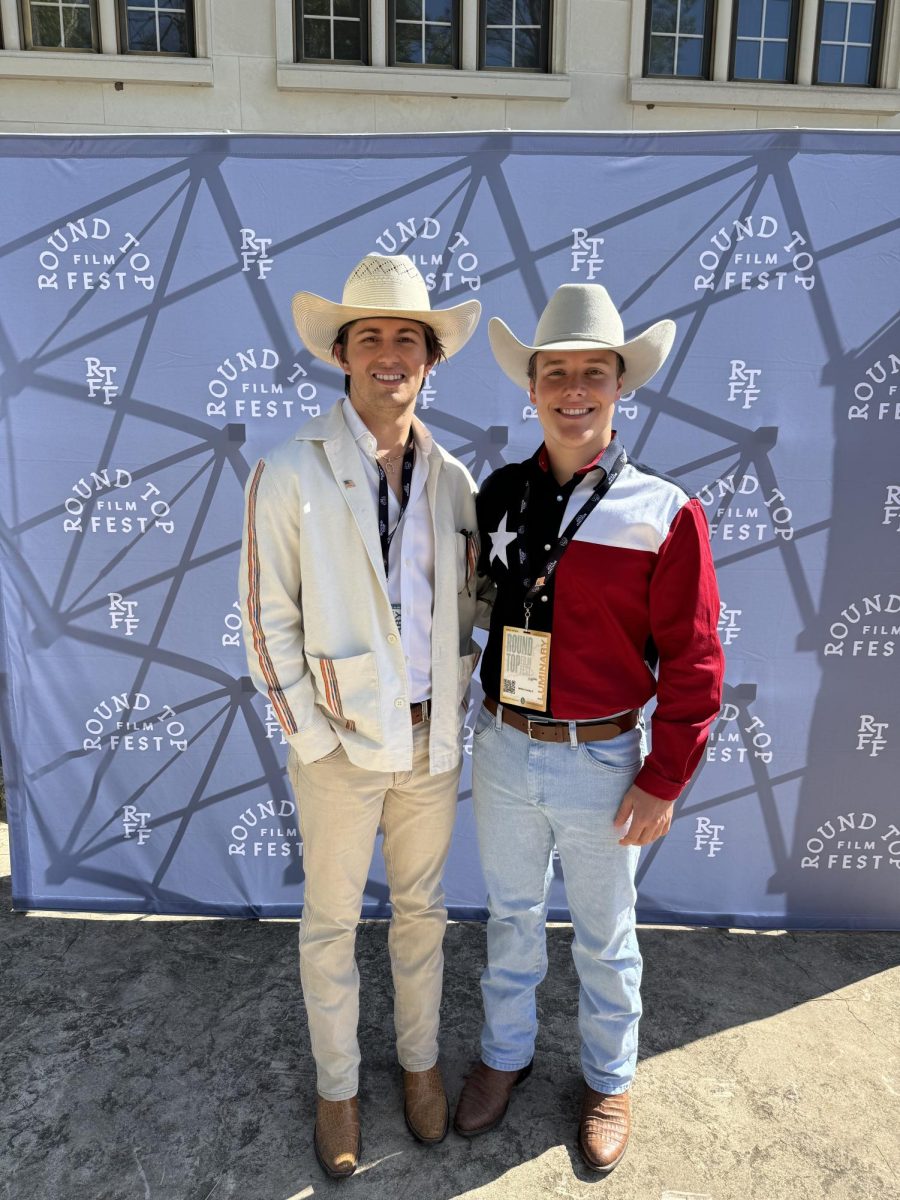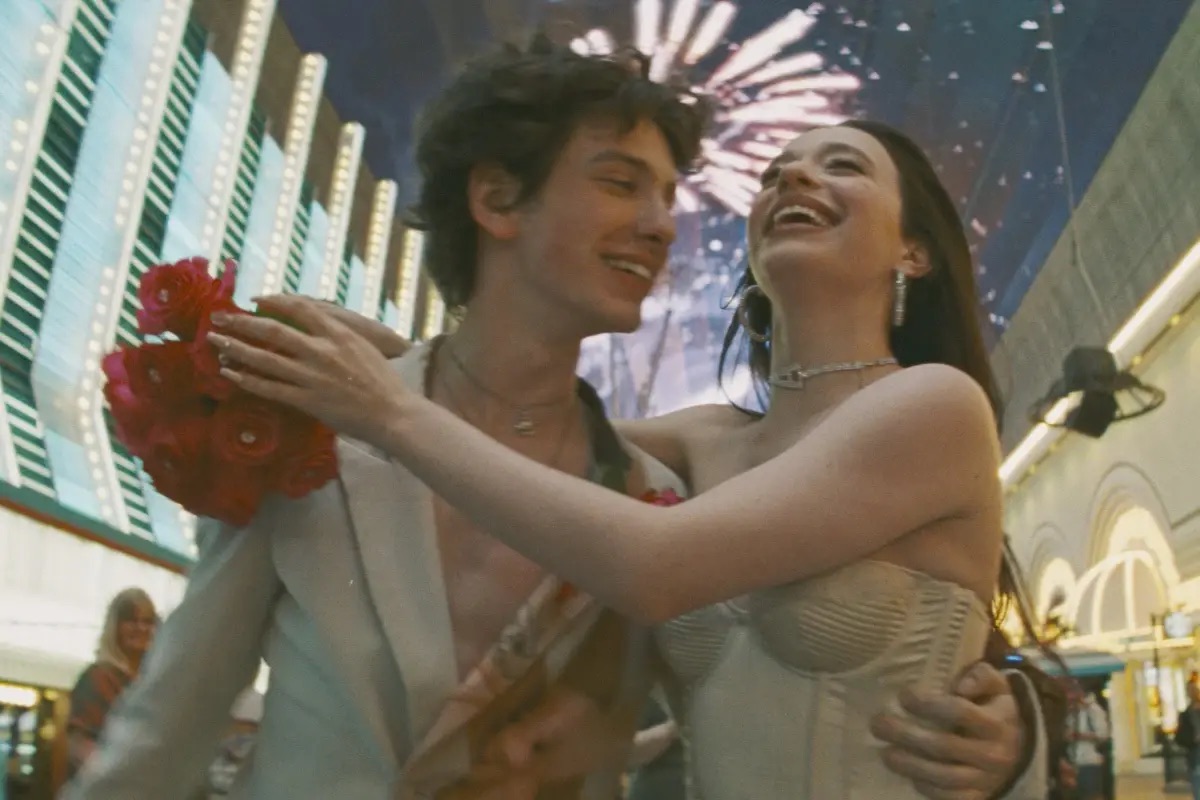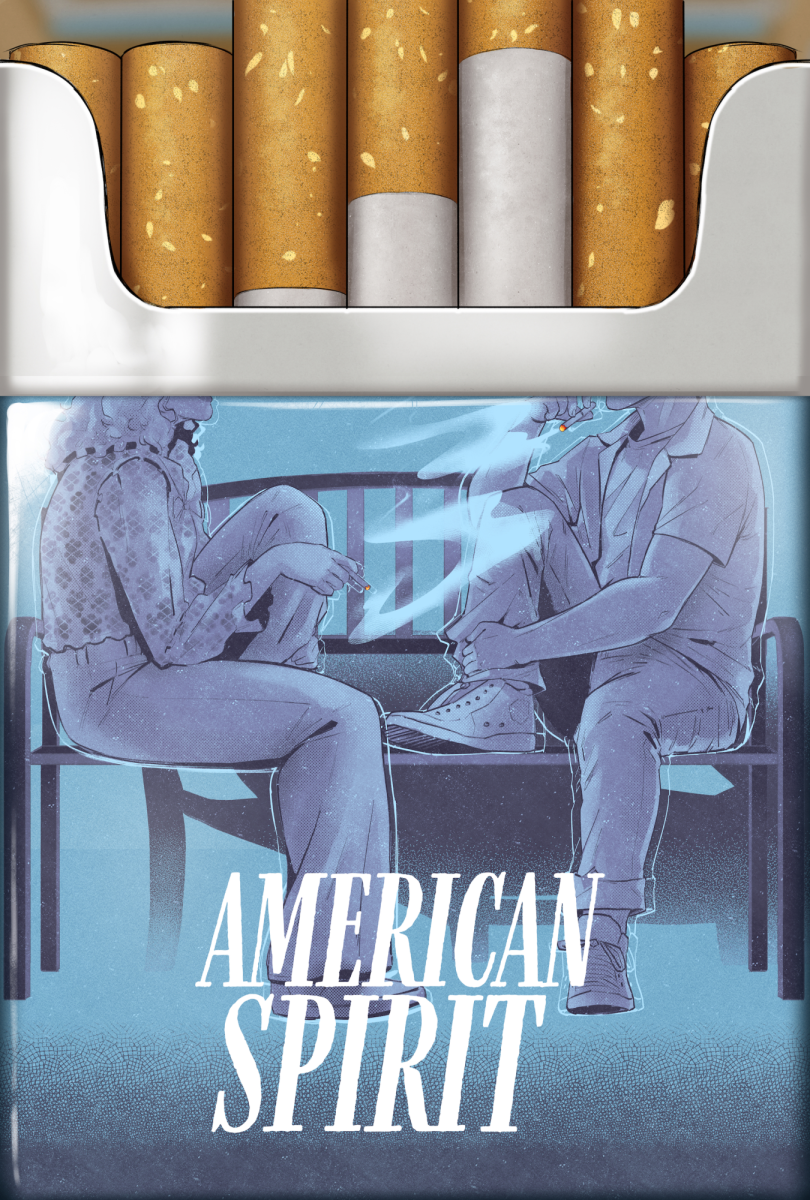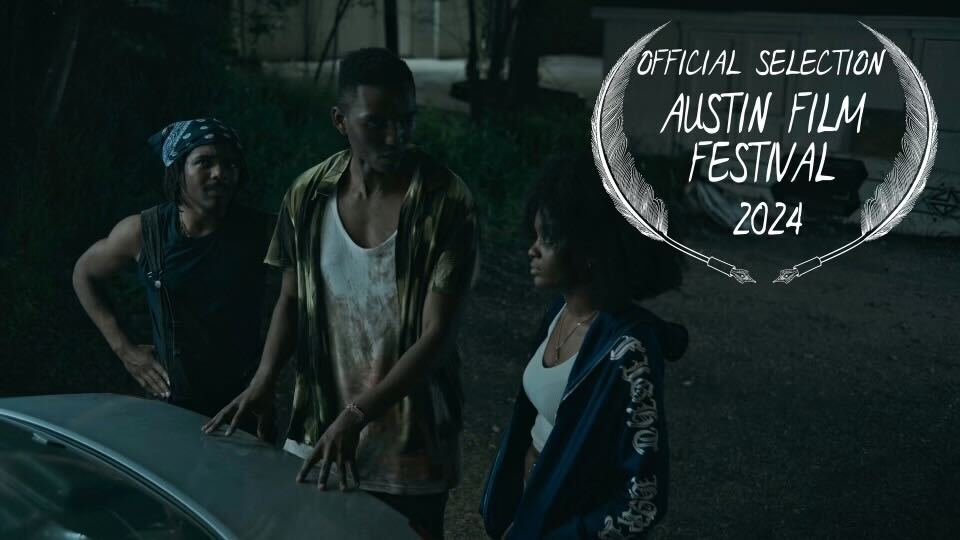RJ Mitte, the 22-year-old actor best known for playing Walter White’s son, Walt Jr., on AMC’s “Breaking Bad,” spoke on campus Thursday night as part of the Campus Events + Entertainment Distinguished Speakers Series. Like his character, Mitte has cerebral palsy — a neurological disorder that affects body movements and muscle coordination. In his talk, Mitte talked about his experiences growing up with cerebral palsy and working as an actor with disabilities. Prior to the event, Mitte sat down with The Daily Texan for a Q&A.
Daily Texan: Do you have any favorite moments from the work you’ve done on different shows?
RJ Mitte: I loved being a part of the “Breaking Bad” pilot. We had so much fun doing it. I had the privilege to be a part of a show called “Switched at Birth” on ABC Family. It was such a warm, welcoming crew. I’m lucky; no matter where I go or what I do, I always meet some amazing people. I’ve always been able to work with the best, and I continue to hope for that.
DT: Why do you think disability representation is important?
RM: One of the biggest things [we work on] today is changing the mindset. It will affect our future, how people behave and what they do and how they talk to other people in the long run, especially when it comes down to disability, because disability does not discriminate. It does not care what color you are, where you’re from, who you are or what you do. Everyone is affected in one aspect or another. If you have inaccurate media [representation] about disability, it affects how people think about who they are.
If you have media that, instead, depicts disability accurately, that shows people that disability is normal, that it can unite us as a whole under the human condition. Media needs to be a really positive thing. It needs to be honest
because it affects people not just our age, but children. It has an impact on how children will grow up to treat each other and their own children. It even influences how parents treat their own children. You can give people brighter futures by having better disability representation.
DT: Do you think that the state of disability representation in the media is improving?
RM: Is representation improving? Yes and no. I feel like it’s growing, and it’s changed a lot. It’s leaps and bounds away from what it used to be, especially with all the disability acts that were passed and everything that came up through the disability community. When I first started working with the community, there was only 2 percent representation on television and film of major characters with disabilities. Now, there’s around 11 percent. Actually, let me fix that. [It’s closer to] 7 percent, because a show that had that representation with a lot of disabled characters kind of got canceled. But I sit on several boards for diversity, and they are always working to fix those problems.
DT: What’s next for you? What are you interested in working on?
RM: Anything and everything. I shot two movies last year that I’m hoping will be released this year. I audition, I audition, I audition. It’s the story of my life. I do whatever will keep the lights on. I have a couple of boards I sit on — one of them [is] actually in Austin. I work with children’s hospitals, I support United Cerebral Palsy. I always work a lot with nonprofits. There’s never a dull moment in my life.

